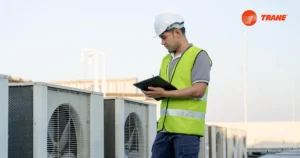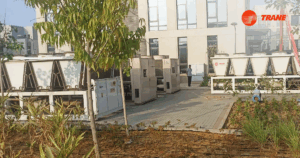In Kuwait’s rapidly evolving infrastructure landscape, reliable heating service has become just as critical as cooling solutions, even in a region where extreme heat often dominates the conversation. From large-scale infrastructure projects to modern residential developments, the demand for year-round climate control is rising. Modern buildings, industrial facilities and healthcare institutions are investing in efficient heating technologies to ensure continuous comfort and uninterrupted operations.
The Role of Heating in a Predominantly Hot Climate
For many, Kuwait is associated with scorching summers where temperatures often climb beyond 50°C. However, the winter months reveal a different reality. Temperatures can dip sharply, making heating a necessity for residential spaces, commercial facilities and sensitive environments like hospitals and laboratories. In this context, the integration of complementary technologies such as the air cooled chiller has strengthened energy management strategies. These systems are valued not only for cooling but also for their ability to provide flexibility in environments that require precise temperature control.
Rising Energy Demand and Sustainability Goals
Kuwait ranks among the world’s top consumers of energy on a per capita basis, with nearly 70 percent of the country’s electricity use linked to climate control systems. This level of demand places immense pressure on infrastructure, especially during peak seasons. To balance this, the government has outlined sustainability goals that include diversifying the energy mix and reducing emissions across all sectors. Heating and cooling solutions are now being designed to support these goals, offering higher efficiency and reduced carbon footprints.
Trane Kuwait’s Approach to Lifecycle Efficiency
Trane Kuwait has consistently emphasized the importance of lifecycle efficiency. Instead of focusing solely on equipment performance at the point of installation, the company ensures its systems remain optimized for years through predictive maintenance and advanced monitoring tools. This strategy reduces unplanned breakdowns and extends the life of critical equipment. In industries such as healthcare and manufacturing, where downtime can have serious consequences, this reliability has proven invaluable.
Businesses Prioritizing Long-Term Value
A recent survey in the GCC revealed that 65 percent of facility managers now consider sustainability and efficiency as leading factors when making purchasing decisions. In Kuwait, this aligns with the trend of businesses choosing heating and cooling solutions that deliver not only performance but also long-term value. For many, this means lowering energy bills while contributing to the country’s broader environmental objectives.
Technology Integration and Smart Building Systems
The adoption of smart building systems has become mainstream across Kuwait’s commercial and industrial sectors. These systems allow businesses to manage climate solutions remotely, adjust settings in real time and predict system performance using advanced analytics. Heating and cooling solutions that integrate seamlessly with digital platforms offer businesses the ability to save costs and comply with evolving energy efficiency regulations. In this way, climate control has become a central part of Kuwait’s smart infrastructure development.
Expanding Demand Across New Sectors
Traditionally, efficient heating and cooling systems were most critical for heavy industries and healthcare institutions. Today, demand has expanded to include hospitality, retail and education. Hotels and restaurants seek advanced systems to maintain guest comfort and reduce operational costs. Shopping centers and entertainment venues use climate control to meet customer expectations while adhering to new energy efficiency standards. Even schools and universities are investing in systems that create healthier, more comfortable environments for students and staff.
Industrial Reliability and Operational Continuity
In Kuwait’s industrial sector, downtime carries significant financial consequences. Unreliable climate systems can interrupt production lines, damage sensitive equipment or compromise worker safety. Trane Kuwait addresses this by delivering heating and cooling solutions that prioritize resilience. Local service teams ensure rapid response times, while the company’s global expertise ensures that solutions meet the highest international standards. This dual advantage has positioned Trane Kuwait as a trusted partner for businesses navigating complex operational challenges.
A Growing Market for Energy-Efficient Infrastructure
Kuwait is currently investing over $200 billion in infrastructure projects ranging from transport networks to healthcare facilities. Each of these projects requires climate solutions that can balance performance with efficiency. For developers, choosing advanced systems has become a competitive advantage, signaling a commitment to sustainability and innovation. With government regulations expected to tighten, the demand for energy-efficient heating and cooling infrastructure will only accelerate.
Looking Toward an Integrated Future
The conversation around climate systems in Kuwait is no longer about separate heating or cooling needs. Instead, it has shifted toward integrated solutions that deliver year-round reliability, align with sustainability targets and adapt to smart infrastructure models. Companies like Trane Kuwait continue to shape this transition, offering solutions that combine performance with long-term value. The future of climate systems in the country will be defined by technologies that ensure continuity, efficiency and environmental responsibility. With systems such as the air cooled chiller, businesses in Kuwait are well-positioned to meet these evolving demands while contributing to a more sustainable future.




